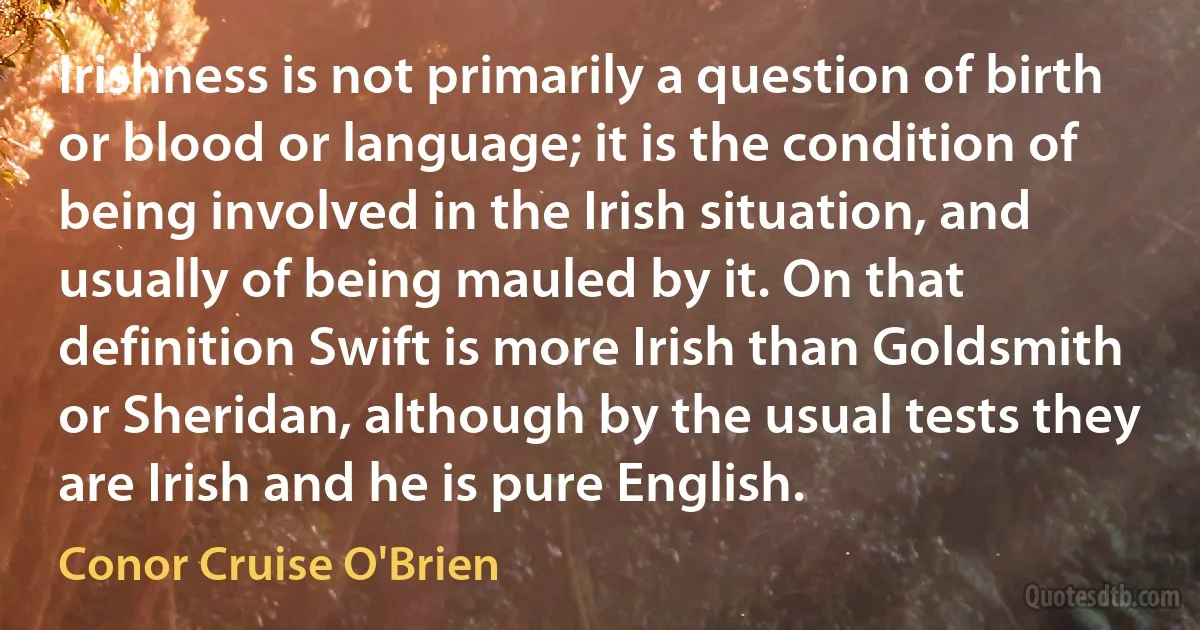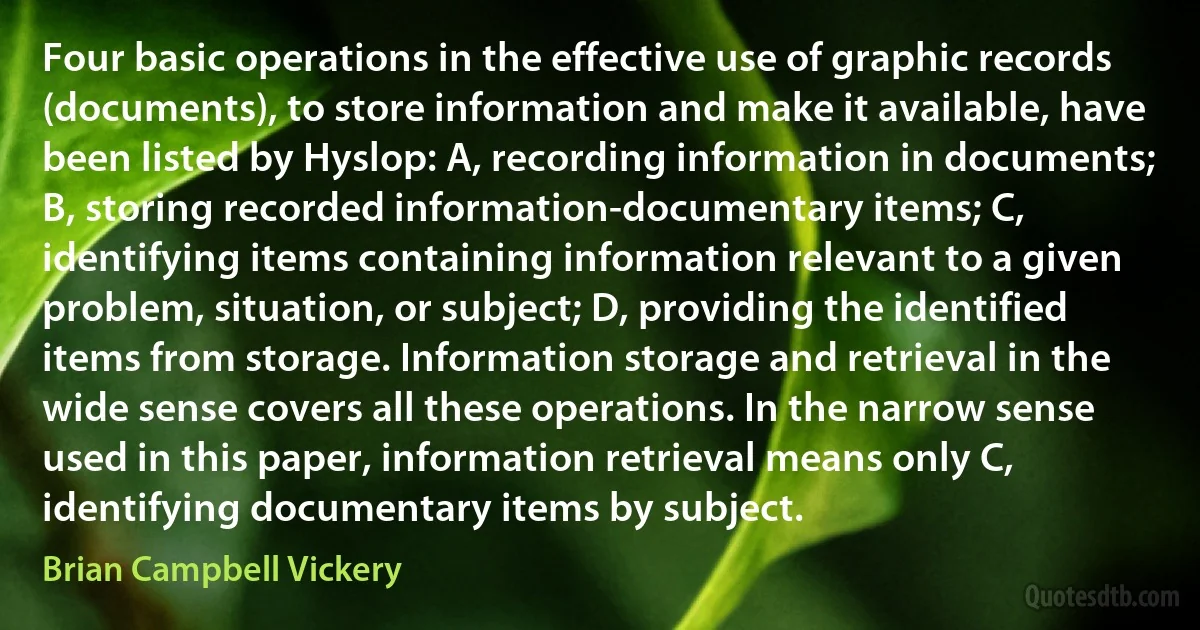Situation Quotes - page 59
I am appalled by your bad judgment and astounded by your policies. Why are you so intent on giving aman, even to an enemy whom you have tested and found hostile and intransigent? It is not necessary to give aman to everyone without discrimination.... In any case, if [the Sindis] sincerely request aman and desist from treachery, they will surely stop fighting. Then income will meet expenditures and this long situation will be concluded.... It is acknowledged that all your procedures have been in accordance with religious law [bar jadah-yi shar] except for the one practice of giving aman. For you are giving aman to everyone without distinguishing between friend and foe.

Muhammad bin Qasim
We communicate with each other to inform, to instruct, to persuade, to amuse, to annoy. Informing and instructing aim to alter the receiver's concepts, whereas persuading, amusing or annoying aim to change his preferences or feelings. In a work situation people do make jokes and enemies, and use the arts of persuasion, but much of their communication has an informal or instructional aspect.

Brian Campbell Vickery
The field of study [of information science ] is so wide and varied; research is necessarily restricted to accessible areas; it often (and rightly) has the practical aim of providing guidance in a specific situation, rather than searching for generalisations; the isolation of variables for investigation is often so difficult; rarely can confirmatory experiments be undertaken.

Brian Campbell Vickery
Conduct, of course, is possible without science. Humans carried on in their daily affairs long before the first spark of science had been struck. And today there are millions of people living whose actions are not determined by anything we call science. Science, however, could not but gain an increasing influence on human behaviour. To describe this influence roughly and briefly will throw a new light on science. Exaggerating and schematizing the differences, we can say: in the prescientific stage man behaves in a situation as the situation tells him to behave. To primitive man each thing says what it is and what he ought to do with it: a fruit says, "Eat me"; water says, "Drink me"; thunder says, "Fear me," and woman says, "Love me."

Kurt Koffka
At the time of Muhammad bin Qasim's invasion of Sindh the head of the State was the Caliph and prisoners taken in Sindh were regularly forwarded to him. Kufi, the author of the Chachnama, rightly sums up the position. Out of the total catch, four-fifths was the share of the soldiers, "what remained of the cash and slaves was... sent to Hajjaj (the Governor of Iraq )” for onward transportation to the Khalifa. In such a situation any special acquisition had to be paid for in cash. Muhammad bin Qasim who wished to possess Raja Dahir's wife Ladi, avers the Chachnama, "purchased her out of the spoils, before making her his wife.” But the price he paid is not mentioned. Similarly, when Hajjaj sent 60,000 slaves captured in India to the Caliph Walid I (705-715 C. E.), the latter "sold some of those female slaves of royal birth”,5 but again their price has not been specified.

Muhammad bin Qasim
I always wanted to be a working stunt person and thats all I anticipated doing, never thinking that I would do any kind of acting because i have never been trained in any way and certainly never thinking anyone would ever want me to sign an autograph for them! (laughs) Of course everything changed the first time I played Jason. All of a sudden it was completely different it was fantastic, dont get me wrong, I didnt dislike it but I just never expected it. I think I tend to appreciate my situation and appreciate the fans sometimes more than other people might because I know without the horror fans I wouldnt be known as I am now. I attribute all that notoriety to the fans and thats why I try to be as accommodating and friendly to them as I can.

Kane Hodder
All of you now what the situation was before the Revolution. All of you know of the regime which we have exterminated. It was that regime which was mercilessly destroying all the sincere people who stood in its way in the course of the struggle for God, for the people and for the homeland.

Abd al-Karim Qasim
If our usual response to an annoying situation is a curse, we're likely to meet emergencies with a curse. In the little events of daily living we have the opportunity to condition our reflexes, which are built up out of ordinary things. And we learn to bless first of all by being blessed.

Madeleine L'Engle
The first of the two cases which we are about to discuss concerns a large-scale Parisian administrative organization which may be described as rigid, standardized, and impersonal, and which seems unable to cope with the human and technical problems engendered by its recently accelerated growth. Its hierarchical structure, its promotional system, and its principles of organization are extremely simple. The behavior of its different categories of personnel, as actors within its social system, is therefore much easier to analyze. The actors appear to be both extremely rational and extremely predictable, as if they were playing a game that followed an experimental model. We shall use the opportunity afforded by such a situation to try to understand better one of the most fundamental problems usually associated with the concept of bureaucracy, the problem of routine.

Michel Crozier
If we look at the reality of the world from the viewpoint of the industrial era, it is clear that there is no hope But there is another way to look at our situation. We can discover the large number of people who have decided to change. ... If we do this, it seems equally impossible that we shall fail to solve our problems.

Marilyn Ferguson



